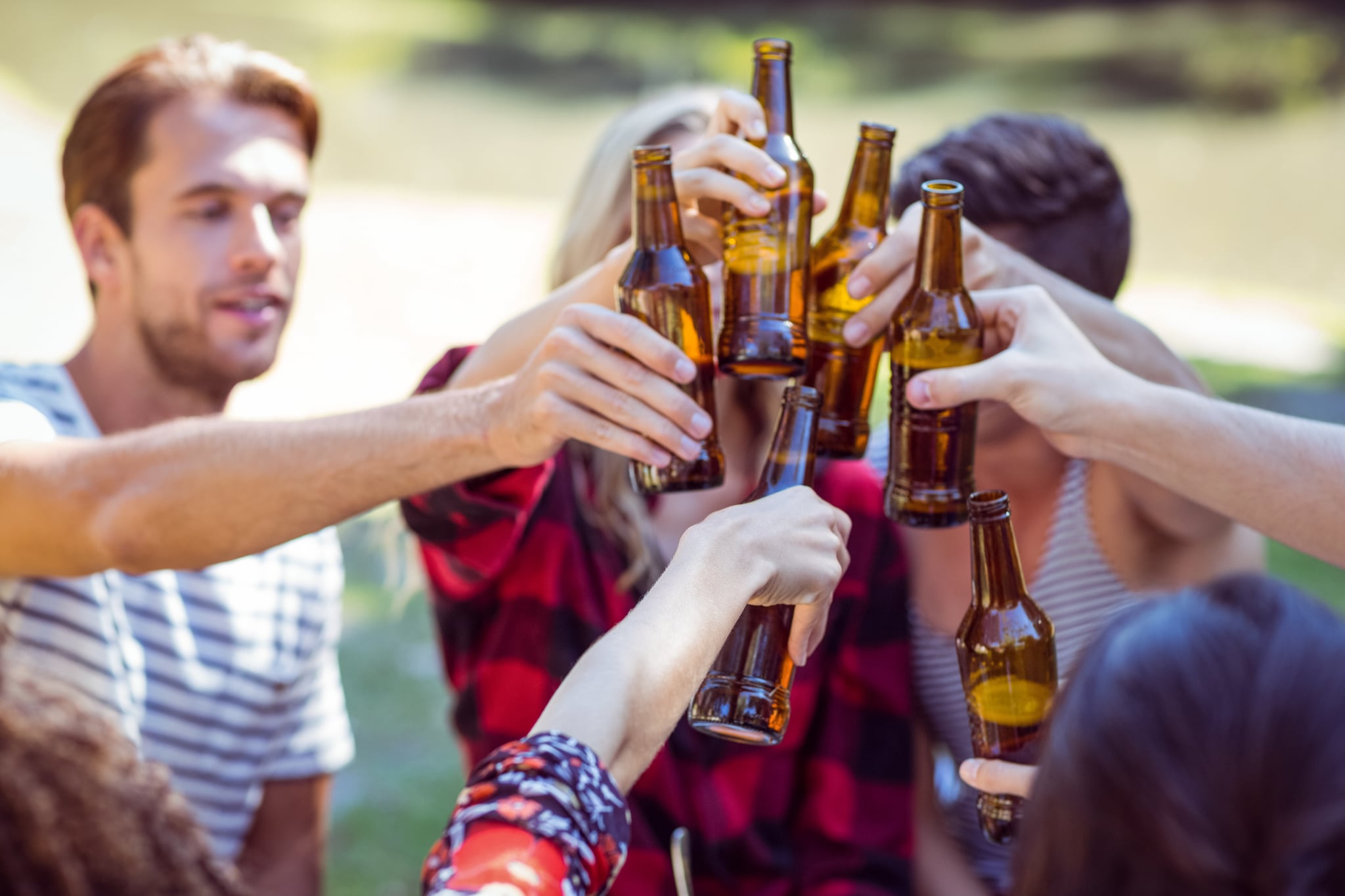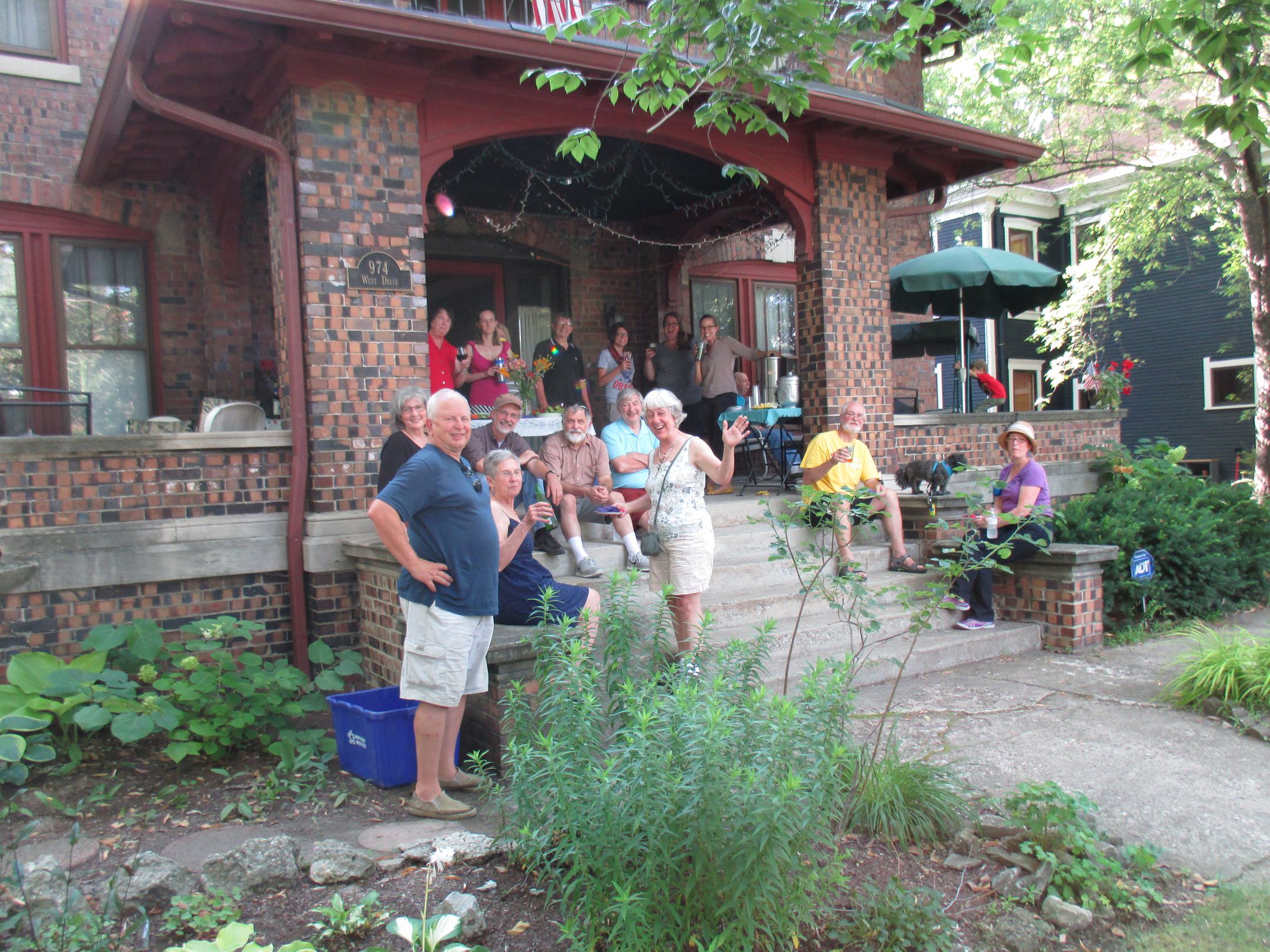Wait a minute, the question “Can you drink alcohol in front of your house?” seems a little odd since it is one’s personal property, and therefore, it would mean that one can do whatever he or she wants to. But maybe there are some exceptions to this.
Table of Contents
ToggleDrinking Alcohol in General
Alcohol is one item that can both be enjoyed alone and with good company. It makes one’s alone time a little more enjoyable and even a little bearable at times.
One can say that if he or she is down in the dumps, a cold bottle of beer is the way to go, and since it has been backed up by some studies conducted before that beer or alcohol in general, when consumed by an individual creates an effect that releases the happy hormone called dopamine. In beer language, they call it the ‘beer buzz.’
It is a sweet phenomenon where the perfect balance of confidence and diminished inhibitions is achieved. That is just one of the many reasons why people drink alcohol; some may be simple reasons, some may be petty, and some might just have no reason for drinking at all. It is what it is.
Drinking in Public

Yeah, so you love drinking alcohol so much that you just take your bottle everywhere you go. Well, you might want to reconsider your next step because some provisions in the law do not allow drinking in public areas so nonchalantly.
There are national laws on alcohol, there are also laws that are different for every state, and there are laws that each town can enforce on their residents. That’s why you might want to double-think and do some research about your local area’s drinking laws and prohibitions.
In states like Arkansas, Arizona, Kansas, Minnesota, Maryland, Hawaii, New Mexico, Oklahoma, and South Carolina, public drinking is strictly banned. Drinking in public is also not allowed in Washington, Utah, Virginia, and West Virginia. However, some states only have some restrictions on drinking in public areas.
Drinking at Home
Having several states that take drinking alcohol in public seriously, they must then be relaxed when it comes to drinking at home. It is, after all, your own home and own property. In one case, a certain woman was found guilty of public intoxication on her front door steps by district judges in Iowa, but the Supreme Court later overturned the ruling.
The case where the woman was convicted by the district court started with a police response to a call for domestic violence and later found the woman who called for the police’s help to be intoxicated and she was penalized for it.
She pleaded her case at the district court, saying that one’s front porch is not public space but still part of the private residence. The district court ruled her guilty of public intoxication as the judge of the case reasoned that the front porch of any residential unit is already a public place as it is readily accessible to anyone who would want to enter and possibly knock on the front door.
The district court’s ruling seemed to be a bit high-handed as this would create massive chaos in terms of private property and one’s right and liberty within the confines of his or her property. Hence, when the woman pleaded her case to the Supreme Court, they found the District Court’s ruling to be in the wrong and their interpretation of the law to be a bit too constricting.
It goes without saying that it is safe to say that there are some states, cities, and localities that are strict when it comes to the interpretation of the terms ‘public space’ and ‘public intoxication.’ It would be best to stay clear of these areas and do your due diligence to conduct some thorough research before you sit down on your porch and drink your ice-cold beer or relax on your pool chair and sip a nice mojito.
Provisions about Drinking Alcohol
During the time of the great Prohibition, alcohol was not allowed to be sold, but since the 21st Amendment, alcohol has been more freely manufactured, distributed, bought, and consumed.
But to stop minors from buying, possessing, and drinking alcohol, a legal drinking age was instituted. In most states in the US, it is 21, and one has to present an official government ID to purchase an alcoholic drink or even go to clubs, bars, and pubs to drink. Some provisions, though, allow restaurants to serve alcohol in restaurants to young adults around the age of 18.
One interesting provision in the law about selling alcohol is what is called a “Blue Law,” where sales, distribution, and consumption were strictly prohibited on Sundays during the 1990s up to 2002, which the law has gradually been softened in some states. Under such “Blue Laws,” some states are coined “dry” for strictly imposing the ‘no alcohol’ law, and some states like Texas and Kentucky are coined “moist,” where beer and wine are allowed even on Sundays.
Other states like North Carolina have a time limit for selling alcohol; stores here can only sell at 10 in the morning onwards and not before. In the state of Indiana, they passed a law that does not allow convenience stores and groceries to sell cold beer to discourage minors from buying them. However, whether this does deter those minors is a bit of a skeptical topic.
If asked whether you can drink at home, the answer is definitely ‘yes,’ but it is a different discussion if you go outside your doors. Will it still be considered part of your private property, or will it be considered already a public area?
It will be determined by the sanctions and provisions in the law about drinking alcohol within your local area. So be wise and check with your local area and avoid being the next in the long line of those who have been penalized. Like a great philosopher, Aristotle once said, “Ignorance of the Law excuses no one.”

I am a passionate beer connoisseur with a deep appreciation for the art and science of brewing. With years of experience tasting and evaluating various beers, I love to share my opinions and insights with others and I am always eager to engage in lively discussions about my favorite beverage.
















